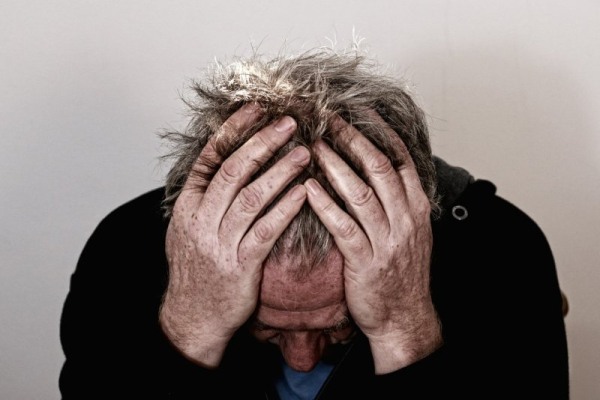
Seventy percent of adults say they’re worried about current events, particularly the economy (77%), the upcoming election (73%) and news of gun violence (69%). Photo by geralt/Pixabay
A looming presidential election, continued economic struggles and the threat of gun violence have a rising number of Americans more anxious this year compared to last, a new poll finds.
The survey, conducted in early April among 2,000 adults by the American Psychiatric Association (APA), found 43% of respondents saying they were more anxious this year than last. Advertisement
That’s a higher percentage than was found in polls conducted in 2023 (37%) or 2022 (32%) , the APA noted.
Seventy percent of adults say they’re worried about current events, particularly the economy (77%), the upcoming election (73%) and news of gun violence (69%).
“Living in a world of constant news of global and local turmoil, some anxiety is natural and expected,” APA president Dr. Petros Levounis said in a news release. “But what stands out here is that Americans are reporting more anxious feelings than in past years. This increase may be due to the unprecedented exposure that we have to everything that happens in the world around us, or to an increased awareness and reporting of anxiety.”
Other issues weighing heavily on Americans’ minds:
- Keeping themselves or their families safe, 68%Keeping their identity safe, 63%Their health, 63%Paying bills or expenses, 63%The opioid epidemic, 50%The impact of emerging technology on day-to-day life, 46%Climate change, 55%
When asked what daily factors most impacted their mental health, folks were most prone to say stress (53%) or sleep (40%). Among young people (ages 18 to 34), “social connectedness” ranked higher in terms of impact on mental health compared to folks ages 50 or older, the poll found. Advertisement
However, despite rising levels of angst, the APA notes that only about a quarter of adults say they talked with a mental health care professional in the past year.
Rates of consulting a psychiatrist or other mental health professional were twice as likely among people ages 18 to 34, however, compared to Americans aged 50 and older.
Worries around access to mental health care was often cited by those polled. Among respondents who had availed themselves of such services in 2024, “more than half [59%] are worried about losing access to mental healthcare, and 39% of insured adults are worried about losing their health insurance, as a result of the election this year,” the APA noted.
More folks seem to recognize the importance of mental health: 83% of those polled said that untreated mental health issues negatively impacts families and 65% think it can damage the U.S. economy.
Seventy-one percent of the adults polled also thought that kids are more vulnerable to mental health woes now than they were 10 years ago.
In one piece of encouraging news, 55% of adults believe that stigma around mental health is ebbing compared to a decade ago.
“Over the past ten years, we’ve grown more comfortable talking about mental health, and that’s absolutely key to helping us through the current crisis,” said APA CEO and Medical Director Dr. Saul Levin. Advertisement
There’s tips to managing your anxiety at the Mayo Clinic.
